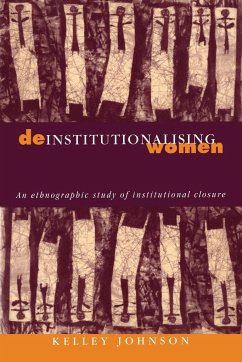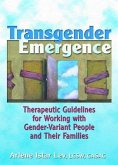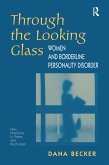This book explores the lives of women living in a locked ward within a large institution for people with intellectual disabilities. Kelley Johnson describes, in rich and carefully-observed detail, the lives of the women in the institution largely through their own stories and experiences. The closure of this institution gave her a unique opportunity to examine closely the impact of deinstitutionalisation on these women. The book raises a number of broad questions about our understanding of disability. It considers the role of professional views of intellectual disability in shaping perceptions. It also looks at the process of deinstitutionalisation, with its paradoxical discourse of rights and management. Finally the book's feminist analysis brings insight to the ways in which institutionalised women are not only locked out of society, but out of their lives as women as well.
Table of contents:
1 Entry points; I INSIDE THE INSTITUTION; 2 Life in the unit; 3 The paths to Unit N; 4 Locked out/locked in; II COMING OUT; 5 The unlocked door; 6 Stepping forward; 7 Coming out; 8 Deinstitutionalisation: Managing subjectivity; III OUTSIDE; 9 Escaping stories.
An ethnographic study of deinstitutionalisation, this book explores the lives of women living in a locked ward within an institution for people with intellectual disabilities. Johnson describes in rich detail the lives of the women in the institution and examines the impact of deinstitutionalisation.
An ethnographic study of deinstitutionalisation, explores the lives of women with intellectual disabilities.
Table of contents:
1 Entry points; I INSIDE THE INSTITUTION; 2 Life in the unit; 3 The paths to Unit N; 4 Locked out/locked in; II COMING OUT; 5 The unlocked door; 6 Stepping forward; 7 Coming out; 8 Deinstitutionalisation: Managing subjectivity; III OUTSIDE; 9 Escaping stories.
An ethnographic study of deinstitutionalisation, this book explores the lives of women living in a locked ward within an institution for people with intellectual disabilities. Johnson describes in rich detail the lives of the women in the institution and examines the impact of deinstitutionalisation.
An ethnographic study of deinstitutionalisation, explores the lives of women with intellectual disabilities.








